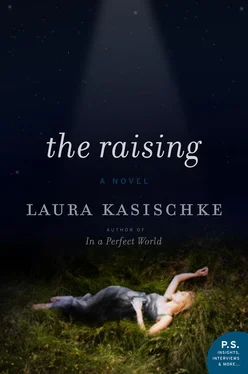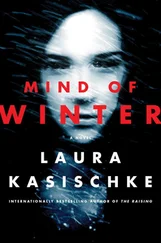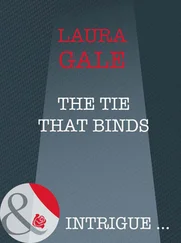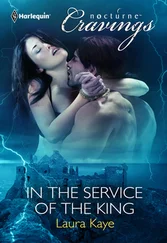She was trying to conduct a class on the subject of Frau Holle-Percht, the German Death Demon, the “Hidden One.” It was usually one of her favorite classes to teach. The students had been assigned to read the translation of a fifteenth-century Latin manuscript from Tegemsee condemning the pagan practice of decorating houses in December to appease the Death Demon and the leaving of little cakes on the hearth for “Frau Holle and her seven lads.”
It was an epiphany for eighteen-year olds, making the connection between Santa Claus and the fear of death. There was always at least one student in every class who’d been afraid of Santa Claus as a child, and told a story of lying awake on Christmas Eve terrified.
But that day Mira got only as far as the custom of tossing little swaddled dolls into the darkness on December 24 (still practiced in a village in the Harz Mountains that Mira had visited her Fulbright year) to try to trick Frau Holle into believing she was being given the families’ actual “dead” babies, and she began to tear up. Where were her own fucking babies right now?
She’d come home from an Honors College curriculum committee meeting later than she’d said she would Tuesday night because there’d been an unexpected challenge to the syllabus for her proposed upper-level seminar on Death and the Cultural Landscape. The chair of the committee wanted to know why Mira had chosen to substitute “field study” for one of the two required theses, and Mira had found herself having to explain that the field study was a precursor to the thesis, that the field study would be the foundation upon which a thesis would be written, and that it would be impossible to accomplish both in a meaningful way in fifteen weeks if she had to assign two papers.
Even Dean Fleming, who’d urged her to propose the course in the first place, had seemed skeptical, and the meeting ended with nothing more than an agreement to revisit the proposal at the next meeting, although it also managed to run an hour over.
It was raining when Mira finally got out of Godwin Hall, and she had no umbrella. She was ruining her shoes, she knew—nice Italian leather pumps she’d bought on sale a few years before—but she couldn’t risk calling Clark for a ride. He’d have had to bring the twins out with him in the rain, and all the car seat stuff, and he’d specifically asked Mira to get home as early as she could because he wanted to go to a meeting of the Armchair Philosophers, a book group recommended by one of the mothers from the regular Espresso Royale play dates. This mother, too, had been on her way to a degree in philosophy (“The real thing,” Clark had said of her, “studying with Kurdak at Princeton”), which had been derailed by a baby. The group she’d talked Clark into joining sounded to Mira like exactly the kind of thing Clark would despise, but he seemed to want to go.
“I don’t know,” he’d said noncommittally, “probably a waste of time, but she said these were serious people, and that the group might save my life.”
Clark snorted then at his own words, but Mira could tell that he’d confided in this coffee klatsch companion that his life needed saving, and that her advice meant something to him. Mira might have been suspicious of Clark’s relationship with this female philosopher, except that a few weeks earlier, on the street outside the hardware store, Clark had introduced Mira to her (Deirdre), and Mira had seen that not only was Deirdre pregnant again—seven months—but that the rolling enormity of that pregnancy was on top of what appeared to be already a lot of excess weight. His interest really was, it seemed, solely in the club, and the idea that Clark might rekindle his passion for philosophy filled Mira with a kind of hope that also felt like panic. She hadn’t realized how much she’d missed that Clark—the one with the books piled up beside the bed, the one with the pencil tucked behind his ear.
So, now she was filled with grief for the lost opportunity of the Armchair Philosophers as she ran for their apartment, her shoes filling with water (she could literally feel the fine stitches and the glue that held them together melting around her feet), knowing that it was too late. Even if she’d gotten home ten minutes earlier, Clark could not have made it across town to the meeting in time, and he was not the kind of person who showed up at something like this late. He would be furious, probably. Relieved, too, but he would be angry at her for that relief. He hadn’t spoken to her since their fight the night before, except to remind her to get home on time so he could make it to the “book club for would-have-beens,” and she’d assured him that she would do her best.
Mira ran through the parking area outside their apartment house so quickly that she didn’t notice that their car wasn’t parked in its usual space, and when she found that the door to their apartment was locked, she assumed he’d done it to frustrate her, to make her have to fish through her bag to find her keys. She felt so guilty about being gone that it didn’t occur to her to be furious. He was probably on the couch with the newspaper, listening to her struggle with the lock.
Then, when she’d finally gotten herself into the apartment, thrown her bag on the floor, and called out, “Clark?” and he hadn’t answered, she figured he was in the bedroom, fuming, that she’d find him on his back in their bed, staring at the ceiling, an angry little lecture all prepared—or, he’d simply put on his shoes, walk past her without a word, wearing his running shorts, heading out into the rain, refusing to turn around when she spoke to him.
But when Mira went in the bedroom and he wasn’t there, she put a hand to her mouth, her first thought being, Jesus Christ, he’s gone to his fucking meeting and left the twins alone in the apartment.
“Andy? Matty?”
They weren’t in their room. The Thomas the Tank Engine sheets were on the floor, and the dresser drawers were open:
Clark had taken them with him to the meeting, she thought, and she almost laughed out loud with relief. She went into the kitchen, looked on the counter.
No note.
Typical.
He wanted to punish her. But that would be nothing compared to the guilt he’d pile on her when he got back, and told her how the twins had ruined the meeting for everyone.
Or, maybe not. Maybe Deirdre’s husband was watching the kids? What was her last name? Had Clark ever mentioned it?
Mira opened the phone book, but soon realized there was no point combing it for a Deirdre. She’d simply have to wait for her punishment. She’d make it up to him with a loaf of Irish soda bread. It was her specialty. Clark loved it. Or, he used to love it.
Mira poured herself a glass of wine from a bottle they’d opened a week before, wrestled off her ruined shoes, and tossed them in the closet. She mopped up the floor with a paper towel where she’d tracked in water, and then opened the cupboards and took out the canister of flour, the little yellow box of baking soda.
The wine tasted like vinegar and rainwater and reminded her of a train station in which she’d once had to spend the night. (Was it Albania?) The station was in a small village with no hotels, no restaurants, and no one to tell her why the last train of the night hadn’t arrived, or when it would. Luckily, there’d been an old man selling loaves of bread and bottles of wine to the few passengers who, like Mira, had shown up for the train but who, unlike Mira, did not seem surprised when it didn’t arrive. So, she’d drunk the entire bottle of wine, which was sour and warm, and eaten the bread, and listened to the rain until she fell asleep, and in the morning, the train blew its whistle outside the station, and the passengers who’d waited all night for it simply handed over their tickets, and got on.
Читать дальше












